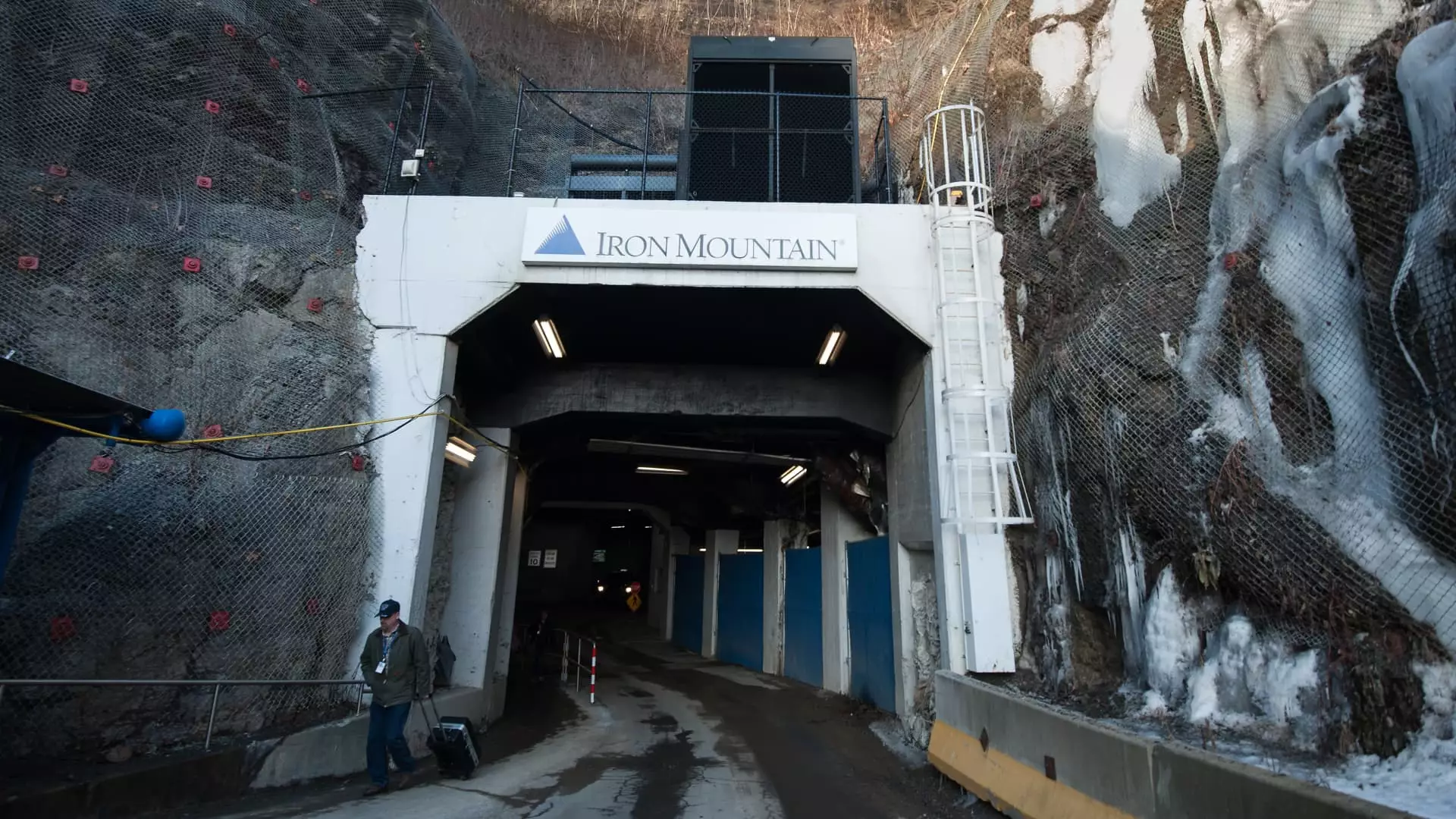The intersection of technological innovation and governmental processes has long been a point of contention in the United States, with criticism often aimed at the inefficiencies inherent in established systems. Recent comments by tech magnate Elon Musk, made during a meeting with President Donald Trump in the Oval Office, serve to highlight this ongoing struggle and bring to light the peculiarities of how the federal government manages its archival procedures.
Addressing President Trump, Musk pointed out a limestone mine dating back to 1955 that the government uses to store critical retirement paperwork for federal employees. His vivid descriptions painted a picture reminiscent of a bygone era, where modern conveniences had yet to mesh with antiquated processes. In Musk’s analysis, the crux of the issue lies within the inefficiency of this operation, which he argues severely hamstrings the speed at which retirement applications are processed. Questions about an elevator speed determining administrative output underscore a surreal observation about how a sector known for its complexity can still become entrapped in outdated methods.
Musk’s comments immediately set off a chain reaction in the stock market, drawing attention to Iron Mountain—a firm prominently involved in the document storage sector. His remarks not only acknowledged the peculiarities of the government’s operational methods but also raised questions regarding the future viability of these contracts, particularly in an administration focused on slashing spending and eliminating waste.
In the wake of Musk’s critique, Iron Mountain’s CEO Bill Meaney addressed analysts on a call, offering a contrasting view of the situation. Meaney framed Musk’s government efficiency initiative as a potential growth opportunity. Drawing on the company’s existing work in digital transformation for governmental agencies, he suggested that there is a path forward that embraces innovation rather than fearing change.
Despite the backlash felt in Iron Mountain’s stock—reportedly dropping more than 10% following Musk’s comments—Wall Street analysts largely interpreted the market response as an overreaction. They argued that Iron Mountain’s diversified revenue streams would provide insulation from potential losses linked to its federal contracts, and that the company’s core focus on data management could actually parallel the government’s ongoing push for modernization.
Musk’s comments invite an examination of the broader political and economic implications. Within the Republican framework, there has been increasing scrutiny of governmental expenses attributed to inefficiencies like the varying contracts with companies such as Iron Mountain. As the Trump administration engages in rhetoric surrounding fiscal responsibility, Musk’s outspoken stance can be seen as casting a spotlight on opportunities for not only cost reductions but also a fundamental facelift of the bureaucratic machinery.
However, such scrutiny also presents risks. While seeking efficiency, there is a delicate balance to be struck between cutting costs and maintaining necessary services. Analysts have pointed out that while the government may wish to eliminate some contracts, others are essential for regulatory compliance, especially for record-keeping that is legally mandated. Thus, companies working within this sector must navigate a dual reality: the necessity for transformation and the constraints posed by bureaucratic norms.
For businesses like Iron Mountain, the stakes surrounding governmental contracts could shift dramatically based on how effectively they adapt to changing demands. Musk’s call for modernization might not only impact the landscape for document storage but also pave the way for enhanced digital infrastructures within governmental systems—a shift that could lead to greater efficiency and transparency.
As Musk continues to advocate for transformative policies, the response from businesses and government bodies alike will be key to shaping what governmental operations of the future will look like. Firms that manage to capitalize on these changes stand to gain from emerging opportunities in service provision, especially as federal agencies reassess their operational needs in a rapidly evolving digital world.
The interplay between innovation spearheaded by entrepreneurial figures like Musk and the often-glacial nature of governmental processes highlights an ongoing tension. It invites further exploration into how technological advancements can be aligned with bureaucratic necessities, ultimately engendering a more efficient and responsive government.

